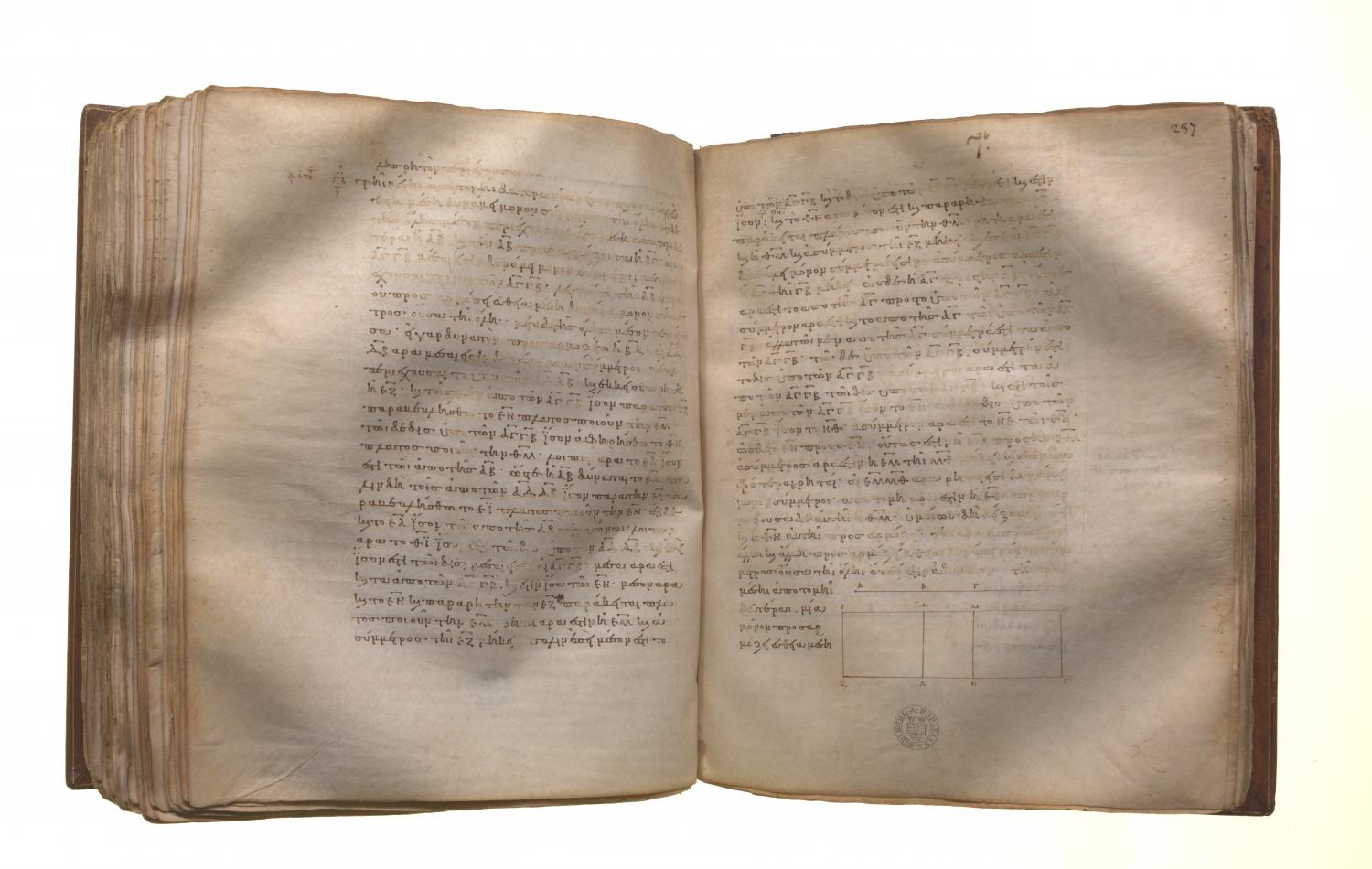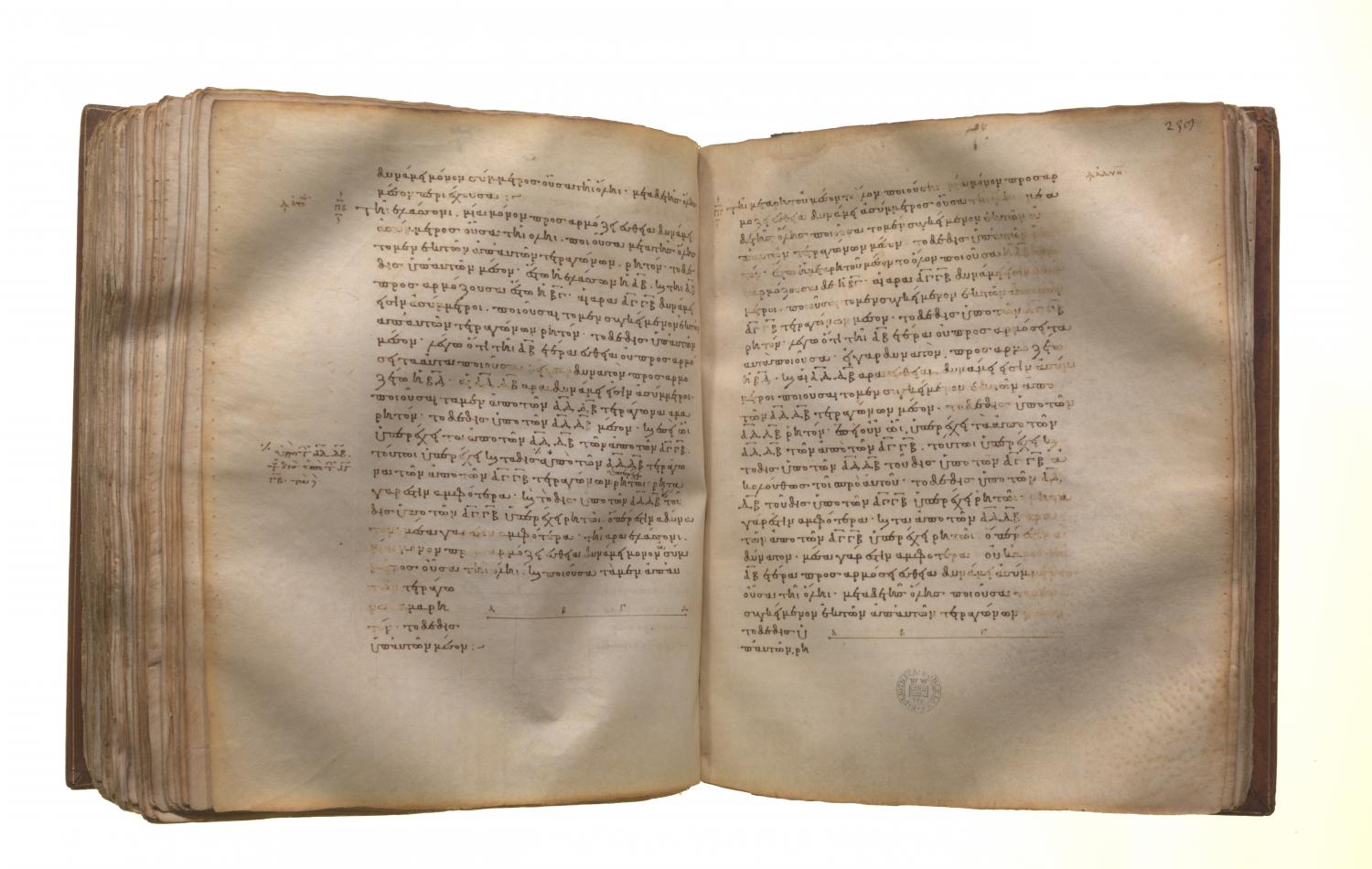Classification of incommensurables: Book 10 Proposition 81
Translations
To a second apotome of a medial straight line only one medial straight line can be annexed which is commensurable with the whole in square only and which contains with the whole a medial rectangle. Let AB be a second apotome of a medial straight line and BC an annex to AB; therefore AC, CB are medial straight lines commensurable in square only and such that the rectangle AC, CB which they contain is medial. [X. 75] I say that no other medial straight line can be annexed to AB which is commensurable with the whole in square only and which contains with the whole a medial rectangle. For, if possible, let BD also be so annexed; therefore AD, DB are also medial straight lines commensurable in square only and such that the rectangle AD, DB which they contain is medial. [X. 75] Let a rational straight line EF be set out, let EG equal to the squares on AC, CB be applied to EF, producing EM as breadth, and let HG equal to twice the rectangle AC, CB be subtracted, producing HM as breadth; therefore the remainder EL is equal to the square on AB, [II. 7] so that AB is the side of EL. Again, let EI equal to the squares on AD, DB be applied to EF, producing EN as breadth. But EL is also equal to the square on AB; therefore the remainder HI is equal to twice the rectangle AD, DB. [II. 7] Now, since AC, CB are medial straight lines, therefore the squares on AC, CB are also medial. And they are equal to EG; therefore EG is also medial. [X. 15 and 23, Por.] And it is applied to the rational straight line EF, producing EM as breadth; therefore EM is rational and incommensurable in length with EF. [X. 22] Again, since the rectangle AC, CB is medial, twice the rectangle AC, CB is also medial. [X. 23, Por.] And it is equal to HG; therefore HG is also medial. And it is applied to the rational straight line EF, producing HM as breadth; therefore HM is also rational and incommensurable in length with EF. [X. 22] And, since AC, CB are commensurable in square only, therefore AC is incommensurable in length with CB. But, as AC is to CB, so is the square on AC to the rectangle AC, CB; therefore the square on AC is incommensurable with the rectangle AC, CB. [X. 11] But the squares on AC, CB are commensurable with the square on AC, while twice the rectangle AC, CB is commensurable with the rectangle AC, CB; [X. 6] therefore the squares on AC, CB are incommensurable with twice the rectangle AC, CB. [X. 13] And EG is equal to the squares on AC, CB, while GH is equal to twice the rectangle AC, CB; therefore EG is incommensurable with HG. But, as EG is to HG, so is EM to HM; [VI. 1] therefore EM is incommensurable in length with MH. [X. 11] And both are rational; therefore EM, MH are rational straight lines commensurable in square only; therefore EH is an apotome, and HM an annex to it. [X. 73] Similarly we can prove that HN is also an annex to it; therefore to an apotome different straight lines are annexed which are commensurable with the wholes in square only: which is impossible. [X. 79]

